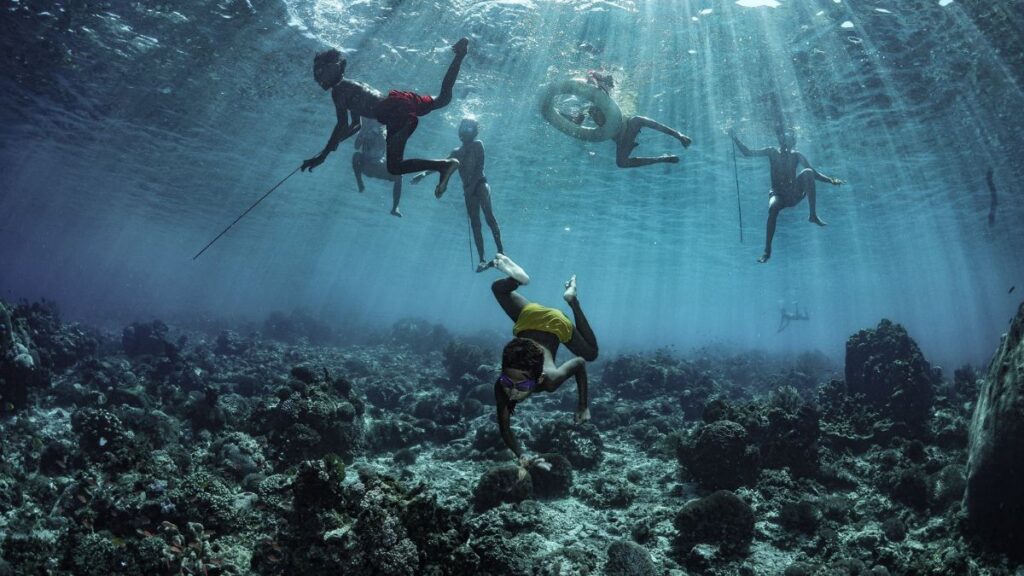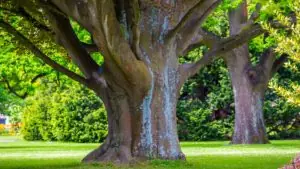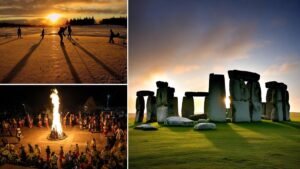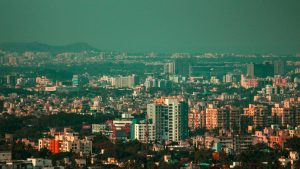The Ones Who Never Step on Land: A Nomadic Tribe Married to the Ocean

Across the world, many indigenous tribes live in isolation, far removed from modern civilisation. Among them, the Bajau Sea Nomads stand out as one of the most unique communities. Inhabiting the coastal regions of Indonesia, Malaysia, and the Philippines, the Bajau people spend most of their lives at sea, rarely setting foot on land. Their deep connection with the ocean defines their identity, culture, and survival.
The Extraordinary Life of the Bajau Sea Nomads
The Bajau are renowned for their incredible free-diving abilities. Without modern diving equipment, they can plunge to depths of 20–30 metres and hold their breath for an astonishing five to 13 minutes. Medical research has revealed that their spleens are, on average, 50% larger than those of ordinary people—a genetic adaptation that enhances their diving endurance. Scientists attribute this trait to a variation in the PDE10A gene, making the Bajau a fascinating subject for evolutionary biology.
From an early age, Bajau children learn to swim and dive, as the sea is not just a source of livelihood but an inseparable part of their existence. They hunt fish, octopus, and sea cucumbers using traditional wooden goggles and handcrafted spears. Their homes are wooden boats called lepa-lepa, which serve as both shelters and transportation. Following seasonal changes, they navigate between islands, relying entirely on the ocean for food, income, and daily sustenance.
Fishing: A Cultural Heritage
Fishing remains central to the Bajau lifestyle and is a strong reflection of their cultural heritage. Communal fishing activities not only provide sustenance but also preserve traditional knowledge and strengthen social bonds. Their methods are sustainable, passed down through generations, ensuring that their relationship with the sea remains harmonious.
Spirituality: A Blend of Islam and Animism
The Bajau’s spiritual beliefs are a unique fusion of Islam and animistic traditions. They worship deities such as Umbo Tuhan (God of the Sea) and Dayang Dayang Mangilai (Goddess of the Forest), symbolising their deep connection with both land and water. These beliefs reinforce their respect for nature and the delicate balance they maintain with their environment.
Threats to the Bajau Way of Life
While some Bajau communities have begun settling in stilt houses along the shore, their hearts remain tied to the sea. However, their nomadic existence is under increasing threat. The rise in tourism has disrupted traditional fishing routes, while some individuals have resorted to destructive practices like dynamite fishing, which devastates marine ecosystems.
Additionally, many Bajau remain stateless, lacking access to education, healthcare, and formal employment. Government initiatives to permanently settle them on land further endanger their nomadic identity and self-sufficiency. Despite these challenges, Bajau leaders are working to raise awareness about their rights and encourage the younger generation to embrace both traditional wisdom and necessary modern adaptations.
A Disappearing Legacy
Witnessing the Bajau culture is a rare and mesmerising experience—wooden boats drifting over turquoise waters, children diving near coral reefs, and the communal joy of traditional dances and fishing. Their way of life is a living testament to humanity’s deep connection with nature. Yet, as modernity encroaches, their traditions risk fading away.
The Bajau Sea Nomads represent a fragile, beautiful culture that thrives against the odds. Their story is one of resilience, adaptation, and an unbreakable bond with the ocean—a bond that defines their very existence.










